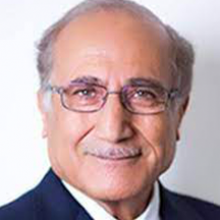You are here
The new Iraqi diplomacy
Feb 25,2019 - Last updated at Feb 25,2019
I had three opportunities last week to meet with Nizar Khairallah, the deputy foreign minister of Iraq for bilateral relations. I listened to him lecture at the Talal Abu-Ghazaleh Economic Forum, I attended a special session limited to a small number of people and last I conversed with him over dinner hosted by Iraq’s industrious ambassador to Jordan, Safiah Suheil.
In all three occasions, Khairallah presented himself as a quiet, eloquent and knowledgeable diplomat. He explained his country’s position and what the new government is trying to do. Yet, he expounded his vision of Jordan-Iraq relationship now and in the future.
He said that Iran’s presence in Iraq is strong, and its impact on Iraq’s policies is traceable all through Iraqi tiers of government. Yet, that should not be construed as a complete Iranian hegemony. Iraq should understand its historical and geographical realities and operate its policies and decisions accordingly.
To him, Iraq and Iran are neighbours and it serves the interest of both countries to remain neighbourly. He said: “We fought each other in an eight-year-long war, which produced eventually nothing but killing and destruction. Similarly, Iraq and Saudi Arabia are neighbours, and regardless of the bilateral disputes between Iran and Saudi Arabia, we in Iraq need to keep our relations with both robust and warm.”
According to Khairallah, all Arab countries must pursue similar policies. “We in Iraq”, he said, “need also to maintain good relations with Egypt despite our differences. Egypt has to worry about its water supply by striking understanding with Sudan, Ethiopia and Libya”. Unless the Arabs accept diversity and internalise all groups into the fabrics of their respective societies, we will be victimised by the so-called new Sykes-Picot.
Iraq also is adamant about the fact that the Palestinian struggle for freedom and independent statehood should materialise at a level that meets the Arab initiative of 2007. We need to rebuild our relations with Syria in a manner independent from the old inter-Bathist disputes. “We will soon open border cross points with Syria.”
Building strategic projects with Jordan is extremely vital for both countries. Khairallah said that “we shall build an industrial Iraqi-Jordanian free zone, where goods produced therein shall carry a dual citizenship and shall be accorded a tariff-free treatment. We need to build oil and gas pipelines from the southern oil fields of Iraq to Aqaba. We also need to construct a railway which would serve countries of the region and be a part of the Chinese ‘One Belt One Road’ project”.
I liked the man and his approach in his lecture. The policy innuendos made in his lecture, whether overt or subtle, should be seriously taken by Jordan.

- Popular
- Rated
- Commented
Apr 08, 2025
Apr 09, 2025
Newsletter
Get top stories and blog posts emailed to you each day.











